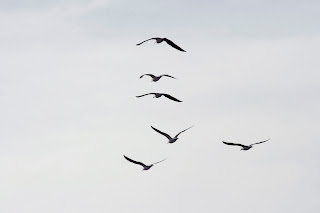"You get ideas when you ask yourself simple questions. The most important of the questions is just, What if...? --Neil Gaiman
 |
| Photo: sxc.hu |
We're waiting for grandbaby # 4 around here. By now it's overdue and keeping us guessing. And not only are we wondering about the birth date. We are eagerly anticipating whether it is a boy or a girl. Like their other two pregnancies, the parents (daughter and son-in-law) have opted to let the baby's gender be a surprise.
So we play the
what if? game.
What if it's a girl? Well, 4-year old Angelica will be thrilled. She wants a baby sister really bad (she already has a younger brother, 2-year old Adrian). When asked, "But what if the baby is another brother?" she answered, "I'm going to be mad."
What if it's a boy? Then hubby and I will have three grandsons (the third being my son and daughter-in-law's little one) under the age of three, a count that will obviously outnumber the child who wants the baby sister. What will she have to say about that when she does the math?
What if? Given time, bunches of stories are sure to pour forth!
Writers play the
what if game, too. It's part of the fun of writing--and contributes in a big way to the journey of discovery in the writing process. It's also helpful when stumped for ideas, trying to generate new ideas, or when struggling with writer's block. Asking
what if helps plumb and pump up the plot pool.
Other authors have weighed in on the subject. Some samples:
Mary Higgins Clark. In her acknowledgements in her book
Where Are You Now?, Ms. Clark writes: "Perhaps the question I am most frequently asked is, 'Where do you get your ideas?' The answer is simple. I read an article in a newspaper or magazine, and for some reason it sticks in my mind... When a situation intrigues me, I ask myself three questions:
Suppose? What if? Why?... And then all the 'supposes' and 'what ifs' and 'whys' start to tumble around in my mind, and a new novel begins."
Neil Gaiman. On his website page
Cool Stuff and Things, Mr. Gaiman
explores the question he, too, is frequently asked: "Where do you get your ideas?" He starts out by saying, "In the beginning, I used to tell people the not very funny answers, the flip ones: 'From the Idea-of-the-Month Club'...Then I got tired of the not very funny answers, and these days I tell people the truth. 'I make them up,' I tell them. 'Out of my head." And then came a day when he spoke before a classroom of seven-year-olds. Inevitably one asked him where he gets his ideas. "And," he writes, "I realized I owed them an answer...This is what I told them: 'You get ideas from daydreaming... You get ideas from being bored...You get ideas when you ask yourself simple questions. The most important question is just,
What if...?"
Mr. Gaiman continues with other pertinent musings:
If only...
I wonder...
If this goes on...
Wouldn't it be interesting if... "All fiction," he continues, "is a process of imagining: Whatever you write, in whatever genre or medium, your task is to make things up convincingly and interestingly and new."
Daniel Mega. In his e-book,
Writing on the Right Side of the Brain, Mr. Mega challenges the writer to simply start writing down ideas. "Need a kick start?" he asks. "Try doing
'what if'...and just start thinking of interesting
what-if scenarios. Or try combining two words together and see if the combination sparks a title for a new book. Try to come up with
50 ideas..." On a personal note, this last one struck a nerve with me, an ah-ha moment. I've picked up the challenge and am determined, as one of my new year's goals, to see what kind of a list of 50 ideas I can come up with. Hopefully a list ready-and-beckoning will emerge as the calendar turns to January, giving me a jump-start for the new year. Stay tuned on that one :-)
Finally,
What If? Writing Exercises for Fiction Writers, by
Anne Bernays and
Pamela Painter. I don't have this book (yet) but I came across the title and I'm intrigued.
Amazon's Book Description: "
What If? is the first handbook for writers based on the idea that specific exercises are one of the most useful and provocative methods for mastering the art of writing fiction... Bernays and Painter offer more than seventy-five exercises for both beginners and more experienced writers. These exercises are designed to develop and refine two basic skills:
writing like a writer and, just as important,
thinking like a writer. They deal with such topics as discovering where to start and end a story; learning when to use dialogue and when to use indirect discourse; transforming events into fiction; and finding language that both sings and communicates precisely.
What If? will be an essential addition to every writer's library, a welcome and much-used companion, a book that gracefully borrows a whisper from the muse."
What if? Suppose? Why? If only? I wonder? If this goes on? Wouldn't it be interesting if? All questions to post near the computer this year.
One might say developing writing ideas is almost like birthing a baby.
Oops, don't tell my daughter I said that... :-)
p.s. An additional take on the subject of "What If..." can be found over at Fictorian Era where Frank Morin has written "What If?--Two Words to Unlock Inspiration." He contends that you cast yourself out into the world of limitless possibilities with those two simple words. Great advice.
_______________________________



